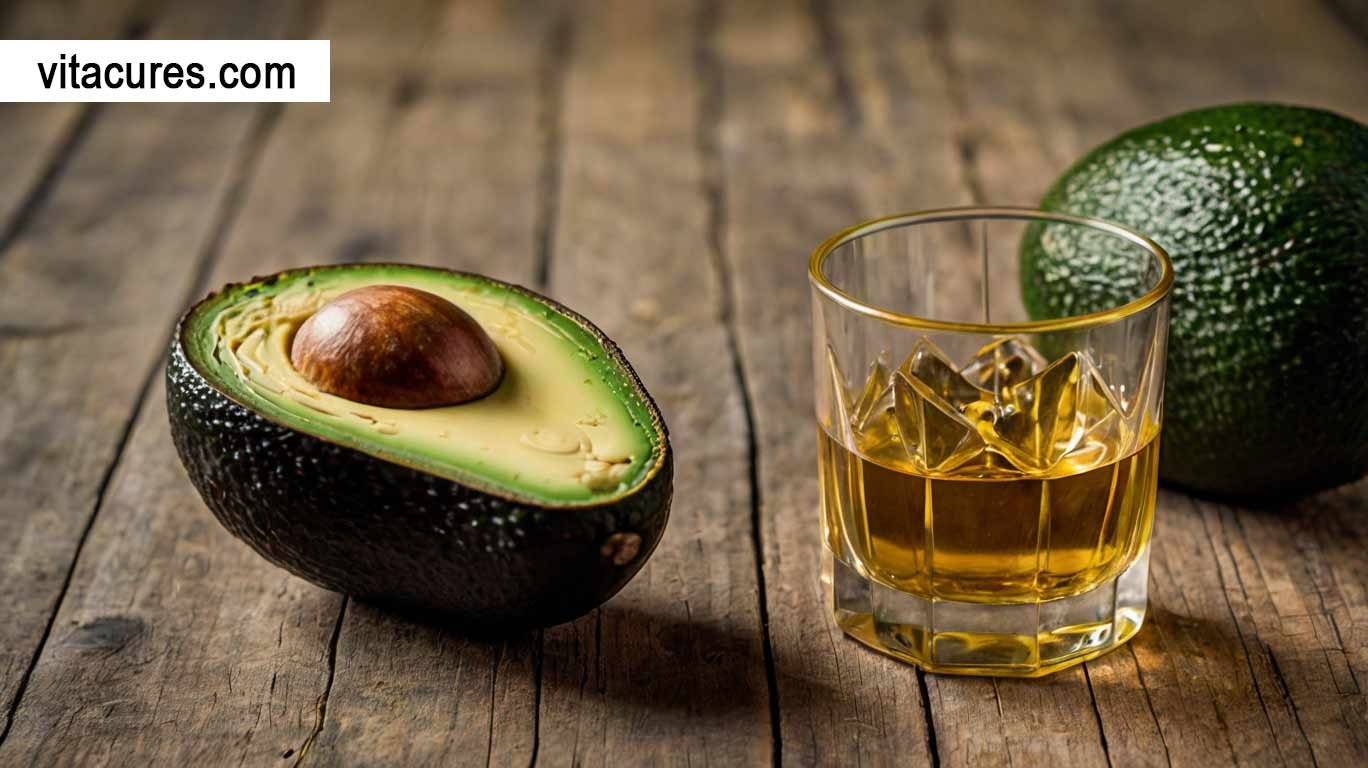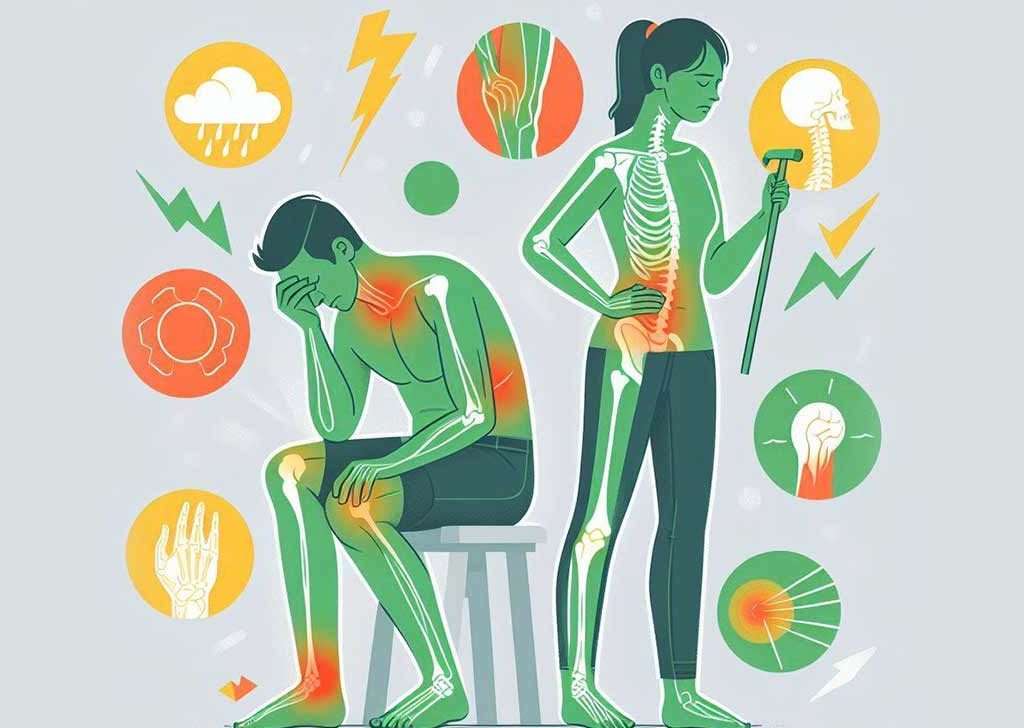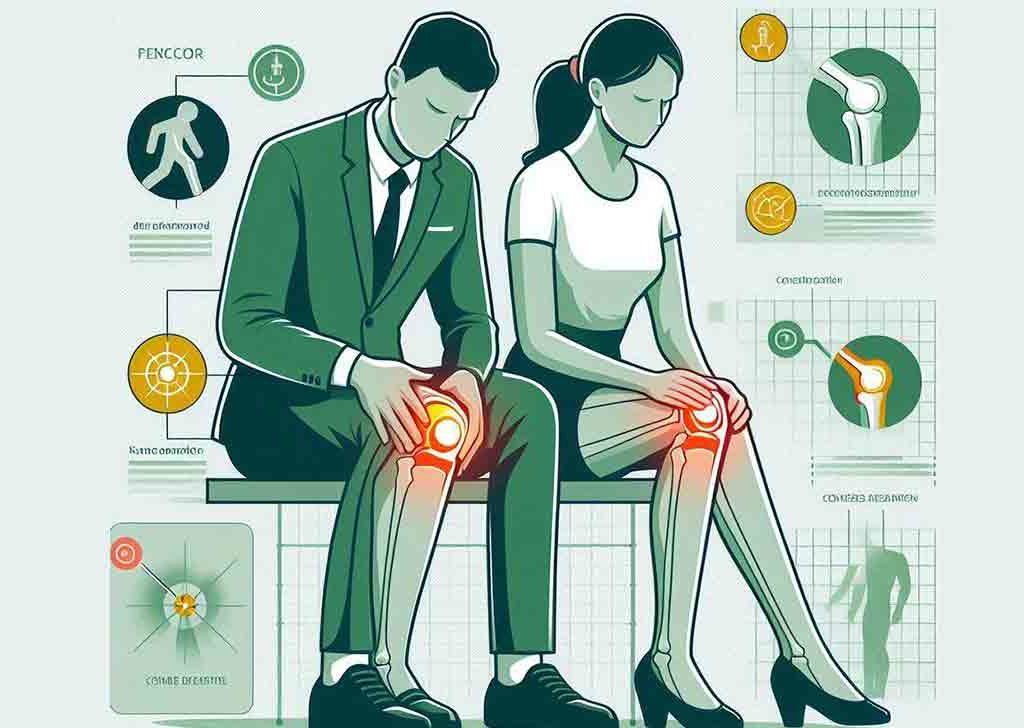Avocados are generally believed to have several positive health effects due to their high nutritional content. Avocados may have some useful components for relieving joint discomfort. Here is the information you need to understand avocados and their potential impact on joint health:
Avocado is high in monounsaturated fats, which are considered healthy fats. These fats can help reduce inflammation in the body, including in the joints. Chronic inflammation is a major contributor to joint pain, particularly in conditions like arthritis.
Specific Nutrients in Avocado That Benefit Joints
- Vitamin E: Avocado is a good source of Vitamin E, an antioxidant that may help to reduce the oxidative stress associated with joint pain.
- Omega-3 fatty acids: While avocados are not as high in omega-3s as fish, they do contain a small amount of these anti-inflammatory fats.
- Fiber: The high fiber content in avocados can also help reduce inflammation.
- Polyhydroxylated fatty alcohols (PFAs): This is a type of fat found in avocados that has been shown to have anti-inflammatory effects.
Research and Studies
Research has suggested that avocados, along with soybean oil (as in the supplement avocado/soybean unsaponifiables or ASU), might help reduce the progression of osteoarthritis. ASU is particularly noted for its ability to help reduce cartilage breakdown and promote cartilage repair. While eating avocado alone doesn’t provide the same concentration of these compounds as the supplements, it still offers a dietary source of similar nutrients.
Dietary Considerations
Incorporating avocados into your diet can be beneficial not just for joint health but also for overall health. They can be eaten in many ways:
- Salads: Adding avocado to salads not only boosts flavor but also helps you absorb more fat-soluble vitamins from the vegetables.
- Smoothies: Avocado can give smoothies a creamy texture and a boost of nutrients.
- As a spread: Use avocado as a healthier alternative to butter or mayonnaise on toast or sandwiches.
While avocados can contribute to a diet that supports joint health due to their anti-inflammatory properties, they should be part of a holistic approach to health. This includes maintaining a balanced diet, staying active, and managing weight. For those with joint pain, especially from conditions like arthritis, it’s also important to follow any treatment plans prescribed by healthcare professionals. Eating avocados can complement these strategies, potentially helping to reduce symptoms and improve quality of life.
Avocado and Alcohol: Their Impact on Joint Pain

Joint pain is a common complaint that affects people of all ages. It can range from mild discomfort to debilitating pain, often impacting quality of life by limiting mobility and daily activities. Many factors can influence joint health, including diet, lifestyle, and underlying health conditions. Among the dietary factors, alcohol consumption is frequently mentioned as a possible cause or aggravator of joint pain. Interestingly, avocado—a nutrient-dense superfood—is often lauded for its anti-inflammatory properties, which could have a positive effect on joint health.
In this comprehensive guide, we will explore how both alcohol and avocado impact joint pain, delve into the causes and symptoms of joint pain, and review available treatments and natural remedies. Whether you’re suffering from arthritis, gout, or general joint discomfort, understanding how these two seemingly unrelated foods and substances interact with your body can help you make better lifestyle choices.
Understanding Joint Pain
What Is Joint Pain?
Joint pain, also known as arthralgia, refers to discomfort, aching, or soreness in one or more joints. Joints are the areas where bones connect, allowing for movement and flexibility. Joint pain can be the result of injuries, inflammation, or degenerative conditions, and it is often associated with diseases such as osteoarthritis, rheumatoid arthritis, and gout.
Common Causes of Joint Pain
There are numerous potential causes of joint pain. Here are some of the most common:
- Osteoarthritis (OA): This is the most common form of arthritis, affecting millions worldwide. OA occurs when the protective cartilage that cushions the ends of bones wears down over time, causing pain, stiffness, and decreased range of motion in the affected joints.
- Rheumatoid Arthritis (RA): RA is an autoimmune condition in which the immune system mistakenly attacks the joints, leading to inflammation, pain, swelling, and ultimately joint damage.
- Gout: Gout is a type of inflammatory arthritis characterized by sudden, severe attacks of pain, swelling, and redness in the joints, particularly in the big toe. It occurs due to a buildup of uric acid crystals in the joints, often triggered by certain foods and drinks, including alcohol.
- Injuries: Trauma to the joints—such as sprains, strains, or fractures—can lead to joint pain. Even after an injury heals, lingering pain and discomfort can persist for years.
- Obesity: Carrying extra weight puts additional pressure on weight-bearing joints, such as the knees, hips, and lower back. This increased load can accelerate the wear and tear of cartilage, leading to osteoarthritis and joint pain.
- Autoimmune Diseases: Conditions such as lupus and psoriatic arthritis also cause joint pain due to inflammation.
- Alcohol Consumption: While moderate alcohol consumption has some health benefits, excessive or chronic alcohol intake can exacerbate joint pain, especially in conditions like gout.
How Alcohol Affects Joint Pain
While alcohol in moderation is often considered acceptable in many diets, its impact on joint health is complex. For individuals already suffering from joint pain or related conditions like gout or rheumatoid arthritis, alcohol can potentially worsen symptoms.
- Increased Inflammation: Alcohol can increase inflammation in the body. Chronic inflammation is one of the key factors in joint pain, especially for those suffering from rheumatoid arthritis or osteoarthritis. Alcohol triggers an inflammatory response that can cause flare-ups, leading to increased pain and swelling in the joints.
- Dehydration: Alcohol is a diuretic, meaning it promotes fluid loss from the body. Dehydration can exacerbate joint pain by reducing the natural lubrication in the joints, making movement more painful.
- Gout Attacks: Gout is closely linked with diet and lifestyle. Alcohol—especially beer and liquor—can increase uric acid levels in the blood, leading to the formation of sharp uric acid crystals in the joints. This condition is called hyperuricemia, and it is the primary cause of painful gout flare-ups.
- Bone Health: Excessive alcohol consumption can interfere with calcium absorption and bone formation, leading to weaker bones and increased risk of fractures. This, in turn, can lead to long-term joint pain, especially in weight-bearing joints like the hips and knees.
Symptoms of Alcohol-Induced Joint Pain
If alcohol is aggravating your joint pain, you may notice the following symptoms:
- Increased joint stiffness the morning after drinking alcohol.
- Swelling and warmth in the joints.
- Sharp, stabbing pain in specific joints (commonly seen in gout flare-ups).
- Dehydration-related discomfort such as dry, stiff joints and muscles.
Avocado and Joint Pain
On the other end of the spectrum, avocados are celebrated for their numerous health benefits, including their potential to reduce joint pain. Unlike alcohol, which may exacerbate inflammation, avocados contain several components that promote joint health.
Nutritional Benefits of Avocados
- Anti-inflammatory Properties: Avocados are rich in monounsaturated fats, particularly oleic acid, which has been shown to reduce inflammation. Chronic inflammation is a major contributor to joint pain, especially in autoimmune diseases like rheumatoid arthritis.
- High in Vitamin E: Avocados are an excellent source of vitamin E, a powerful antioxidant that helps reduce oxidative stress in the body. This vitamin is essential for joint health, as it can help protect cartilage from the wear and tear associated with osteoarthritis.
- Omega-3 Fatty Acids: Although avocados are not the highest source of omega-3s, they do contain small amounts of alpha-linolenic acid (ALA), a type of omega-3 that has anti-inflammatory effects and supports joint health.
- Fiber and Weight Management: Avocados are high in fiber, which can aid in weight management. Since excess weight puts extra pressure on the joints, maintaining a healthy weight through a balanced diet, including avocados, can reduce joint strain and pain.
Avocados and Cartilage Repair
Some studies have suggested that compounds in avocados, specifically avocado/soybean unsaponifiables (ASU), may help reduce the symptoms of osteoarthritis. ASU has been shown to slow the breakdown of cartilage and even promote cartilage repair. This is crucial for maintaining joint function, particularly in individuals with osteoarthritis.
Treatments for Joint Pain

Joint pain treatment depends on the underlying cause. A multifaceted approach, including medications, lifestyle changes, and physical therapy, is often the most effective strategy.
Medical Treatments
- Pain Relievers: Over-the-counter medications like acetaminophen (Tylenol) can relieve mild joint pain. However, they do not address inflammation.
- Nonsteroidal Anti-inflammatory Drugs (NSAIDs): NSAIDs like ibuprofen (Advil) and naproxen (Aleve) reduce inflammation and alleviate pain. Prescription-strength NSAIDs may be necessary for more severe joint pain.
- Corticosteroids: In cases of severe inflammation, corticosteroid injections or pills may be prescribed. These medications reduce inflammation and can provide short-term relief but are not suitable for long-term use due to side effects.
- Disease-Modifying Antirheumatic Drugs (DMARDs): DMARDs are used to slow the progression of rheumatoid arthritis and other autoimmune diseases that affect the joints.
- Biologics: These are a newer class of drugs that target specific parts of the immune system to reduce inflammation in autoimmune diseases like RA.
- Physical Therapy: Regular physical therapy can improve joint function, flexibility, and strength, reducing pain over time.
Natural Remedies for Joint Pain
In addition to medical treatments, natural remedies can offer significant relief from joint pain and promote long-term joint health.
Dietary Changes
- Anti-inflammatory Diet: A diet rich in fruits, vegetables, whole grains, and omega-3 fatty acids can help reduce inflammation and alleviate joint pain. Foods to focus on include fatty fish (salmon, mackerel), leafy greens, berries, nuts, seeds, and, of course, avocados.
- Limit Inflammatory Foods: Processed foods, sugars, and refined carbohydrates can trigger inflammation and should be minimized, especially for individuals with arthritis or other joint conditions.
- Hydration: Staying properly hydrated is essential for joint health. Drinking plenty of water helps maintain the cushioning of joints, reduces stiffness, and prevents dehydration-related joint pain, which is especially important for individuals who drink alcohol.
Supplements
- Glucosamine and Chondroitin: These supplements are widely used to support joint health and are thought to help repair cartilage and reduce pain, particularly in individuals with osteoarthritis.
- Turmeric (Curcumin): Turmeric contains curcumin, a compound with strong anti-inflammatory properties. Some studies suggest that turmeric can help reduce arthritis symptoms and joint pain.
- Omega-3 Fatty Acids: Supplementing with fish oil or flaxseed oil can help reduce inflammation and support joint health, particularly in individuals with rheumatoid arthritis.
Exercise and Movement
- Low-impact Exercises: Activities like swimming, cycling, and yoga are excellent for keeping joints mobile without putting too much stress on them. Regular movement can help prevent stiffness and maintain flexibility.
- Stretching and Strengthening: Strengthening the muscles around the joints can provide extra support and alleviate pain. Stretching exercises can improve flexibility and range of motion.
Mind-Body Practices
- Yoga: Gentle yoga can improve flexibility, strength, and balance while helping to reduce stress and inflammation, which are known contributors to joint pain.
- Meditation: Stress frequently makes chronic pain worse. Meditation and mindfulness practices can help manage stress and reduce the perception of pain.
Heat and Cold Therapy
- Heat Therapy: Applying heat to sore joints can increase blood flow, loosen stiff joints, and provide pain relief. Heating pads, warm baths, and hot water bottles are effective tools.
- Cold Therapy: Cold therapy can help reduce swelling and numb the area to dull, sharp pain. Ice packs or cold compresses can be applied to painful joints.
Avocado and Alcohol: Should You Include or Avoid Them for Joint Pain?

Avocado: A Joint-Friendly Food
Avocados are an excellent addition to a diet aimed at reducing joint pain. Their anti-inflammatory properties, coupled with their role in promoting cartilage repair, make them a smart choice for individuals looking to manage arthritis, gout, or general joint discomfort. Incorporating avocados into your diet, alongside other healthy fats and anti-inflammatory foods, can promote joint health and overall well-being.
Alcohol: Moderation is Key
While moderate alcohol consumption may not be harmful for everyone, individuals with joint pain—especially those suffering from gout or rheumatoid arthritis—should be cautious. Alcohol can increase inflammation, dehydrate the body, and trigger gout attacks, all of which can worsen joint pain. Limiting alcohol intake or avoiding it altogether may significantly improve joint health and reduce pain.
Avocado Pit and Alcohol for joint pain
Avocado Pit for Joint Pain:
- Contains antioxidants and anti-inflammatory compounds.
- Ground avocado pit powder may help reduce inflammation.
- Potential cartilage repair benefits.
- Rich in fiber and healthy fats that support joint health.
Alcohol for Joint Pain:
- Can increase inflammation in the body.
- May trigger gout flare-ups due to increased uric acid levels.
- Leads to dehydration, worsening joint discomfort.
- Can interfere with medications used to treat joint pain.
Avocado seed for joint pain
Potential Benefits of Avocado Seeds for Joint Pain:
- Anti-inflammatory Properties: Avocado seeds contain antioxidants and anti-inflammatory compounds that may help reduce inflammation, a key factor in joint pain.
- Rich in antioxidants: The seed contains polyphenols, which can help combat oxidative stress and reduce cell damage, contributing to joint health.
- Possible Cartilage Protection: Some studies suggest that compounds in avocado seeds may help protect cartilage from degradation, offering potential benefits for conditions like osteoarthritis.
- Fiber and Healthy Fats: Avocado seeds are high in fiber and contain trace amounts of beneficial fats, which contribute to overall health and may indirectly support joint function.
Preparation and Use:
- Ground Avocado Seed Powder: The seed can be dried, ground into powder, and added to smoothies or food. However, there is limited research on the proper dosage for joint health.
- Tea: Some people use the ground seed to make avocado seed tea, claiming it has anti-inflammatory effects.
Caution:
- Limited Research: The use of avocado seeds for joint pain is not yet well-established in scientific literature, and most claims are based on traditional or anecdotal use.
- Toxicity Concerns: While generally considered safe, the effects of consuming avocado seeds in large quantities are not well-researched, so moderation is advised.
Consult with a healthcare professional before using avocado seeds as part of a treatment plan for joint pain, especially if you have any underlying health conditions.
Are avocado seed and alcohol good for joint pain?
No, avocado seeds and alcohol are not typically recommended as a combined remedy for joint pain. Here’s a breakdown of their individual effects:
Avocado Seed:
- Potential Benefits: Avocado seeds may have anti-inflammatory and antioxidant properties, which could theoretically help reduce joint pain. However, research on avocado seeds’ effectiveness for joint pain is limited and not well-established.
- Caution: The safety of consuming large amounts of avocado seed is not fully understood, so it’s important to use it cautiously and in moderation.
Alcohol:
- Negative Effects: Alcohol is generally harmful to joint pain, as it can increase inflammation, trigger gout flare-ups, and dehydrate the body, worsening joint discomfort.
- Caution: Excessive alcohol consumption can also interfere with medications used to treat joint pain and weaken bone and joint health over time.
Conclusion:
Avocado seed might offer some potential benefits for joint pain, though evidence is limited, while alcohol is detrimental to joint health. Combining alcohol with avocado seeds is not a recommended remedy for joint pain. It’s best to consult with a healthcare professional for appropriate treatments tailored to your condition.
When Should You Seek Medical Attention for Alcohol Joint Pain?
- Severe, persistent joint pain.
- Swelling, redness, or warmth in joints.
- Frequent gout attacks.
- Difficulty moving or using the affected joint.
- Pain accompanied by fever or other systemic symptoms.
Who Is Most at Risk for Avocado and Alcohol Joint Pain?
- People with gout or high uric acid levels.
- Individuals with rheumatoid arthritis or other inflammatory conditions.
- Those who consume alcohol regularly or excessively.
- Individuals with obesity or poor diet habits.
- People with a family history of joint diseases.
Where Can You Find Support for Alcohol Joint Pain?
- Primary care physicians.
- Rheumatologists or specialists.
- Support groups for alcohol addiction.
- Physical therapy centers.
- Online forums and health communities.
Where Can You Find Relief from Alcohol Joint Pain?
- Over-the-counter anti-inflammatory medications (NSAIDs).
- Hydration and alcohol reduction.
- Dietary changes, including anti-inflammatory foods.
- Physical therapy and low-impact exercises.
- Medical treatment for underlying joint conditions.
Where Does Avocado and Alcohol Joint Pain Come From?
- Inflammation caused by alcohol consumption.
- Uric acid buildup triggers gout.
- Avocado seeds’ unknown or anecdotal impact on joint inflammation.
- Poor diet and lifestyle choices lead to joint stress.
- Pre-existing joint conditions worsened by alcohol consumption.
10 Ideas to Relieve Alcohol-Related Joint Pain:
- Reduce or eliminate alcohol consumption: Cutting down on alcohol helps reduce inflammation and uric acid buildup, which can trigger joint pain, especially in conditions like gout.
- Stay Hydrated: Drinking plenty of water helps flush out excess uric acid and prevents dehydration, which can exacerbate joint pain.
- Eat an Anti-inflammatory Diet: Focus on foods rich in omega-3 fatty acids (fish, flaxseeds), leafy greens, and fruits like berries to reduce inflammation and support joint health.
- Use Over-the-Counter NSAIDs: Nonsteroidal anti-inflammatory drugs like ibuprofen or naproxen can help reduce pain and swelling in the joints.
- Maintain a Healthy Weight: Losing excess weight can alleviate pressure on weight-bearing joints, such as the knees and hips, reducing pain.
- Exercise Regularly: Low-impact exercises like swimming, yoga, or walking can help strengthen the muscles around joints, increase flexibility, and reduce pain.
- Apply Heat or Cold Therapy: Use heat to relax stiff joints and cold to reduce swelling and numb sharp pain.
- Limit high-purine foods: Avoid foods that contribute to high uric acid levels (e.g., red meat, shellfish, sugary drinks), as they can trigger gout flare-ups.
- Take Vitamin D and Calcium Supplements: These nutrients support bone and joint health and may help in reducing joint pain caused by alcohol-related bone weakening.
- Consult a Healthcare Professional: If joint pain persists or worsens, seek medical advice for personalized treatment, including potential medication or lifestyle changes to address underlying conditions.
Conclusion
Diet and lifestyle are just two of the many variables that can affect joint pain. While alcohol can exacerbate joint pain by promoting inflammation, dehydration, and triggering gout attacks, avocados can have the opposite effect, offering anti-inflammatory benefits and promoting joint health.
Incorporating anti-inflammatory foods like avocados, fatty fish, and leafy greens into your diet while limiting alcohol consumption, processed foods, and sugary beverages can improve joint function and reduce pain. Alongside medical treatments and natural remedies like exercise, supplements, and mind-body practices, these dietary changes can play a crucial role in managing joint pain.
If you’re suffering from chronic joint pain, it’s always a good idea to consult with a healthcare provider to develop a personalized plan that addresses the root causes of your discomfort and helps you maintain healthy joints for years to come.



